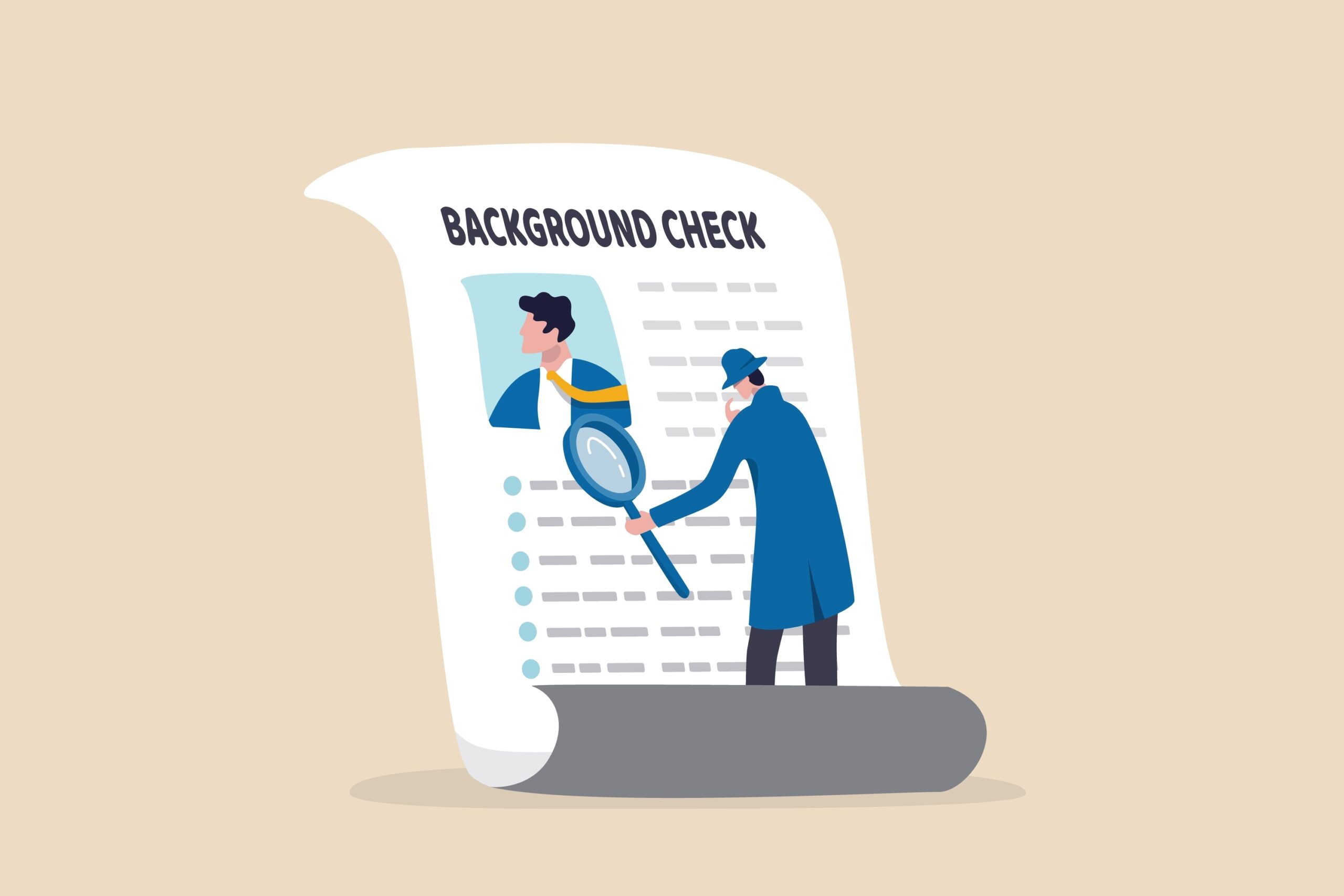In our latest installment of Ask the Expert, brought to you by the team of industry experts at HR Hero®, we look at a recent question from a subscriber regarding candidate criminal background checks and reference checks.
Q: What requirements and laws need to be considered when making employment decisions related to criminal background check results and reference checks? How far back are we allowed to verify information, both criminal and in reference checks with previous employers? What are our obligations related to sharing the findings with the candidate, and additionally, are there specific rules when running a background check for someone who will work in law enforcement?
NOTE: Before taking any action regarding an employee’s background information, we recommend consultation with a local employment attorney experienced with the Fair Credit Reporting Act (FCRA) and employee privacy protection. An attorney will be able to review all of the facts and circumstances and ensure that any authorization forms, disclosures, and procedures comply with federal, state, and local law.
Federal law does not regulate whether employers may conduct a background check but does limit what employers may do with the information. Although criminal records are not specifically protected under Title VII of the Civil Rights Act (Title VII) or any other federal discrimination law, the federal Equal Employment Opportunity Commission (EEOC) takes the position that conviction records must be treated carefully to ensure that their use does not disproportionately exclude minorities from job opportunities.
The EEOC’s Enforcement Guidance on the use of criminal convictions in hiring emphasizes that employers must be able to show their reason for excluding an applicant based on a conviction record is “job related and consistent with business necessity” if the policy has a disparate impact on minority candidates.
Several states also ban employers from asking about convictions or taking action on these records unless the conviction is related to the job, information you will find in the State Law Chart Builder and state analyses. Note, too, that the EEOC and most states also restrict the use of arrest records entirely because of the adverse impact these inquiries can have by excluding minority applicants.
Federal law also does not prohibit employers from conducting consumer reports (including credit checks and general background checks) but strictly regulates how they are performed when an employer uses a third party to conduct the reports. Under the federal Fair Credit Reporting Act (FCRA), employers that use outside agencies to perform credit or other background checks (including criminal, reference, or driving record checks) must comply with comprehensive notice, consent, and disclosure obligations both prior to doing the checks and after the results of the checks are reported.
Specifically, before requesting a consumer report for an applicant, an employer must provide the for employment purposes. This disclosure must be on a separate, self-contained page and may not be included in an employment application or other document containing other employment information, such as a general waiver form.
In addition, the applicant must give written authorization for the employer to obtain the report. This authorization may be obtained with the notice form, and many employers combine the two.
Note that for criminal records and credit reports, seven years is the recommended time frame to look back on an individual’s background. For employment history, the recommendation is to go back a minimum of seven years and possibly longer in cases where there is a gap in employment or a change in careers.
Types of Background Checks
One way you can balance competing concerns about background checks is to consider carefully what information you need to select suitable employees. Background checks generally should be tailored to obtain specific information that relates directly to the individual’s suitability for the particular job and the organization.
The following are examples of the types of checks you can conduct and when to request them:
In other words, not every applicant or employee needs to be subjected to a full criminal or credit record check.
“Bare Minimum” Screening
Background checks for every individual hired should include at least a verification of employment information for jobs held in the last five to seven years. In addition, you should check at least two, and preferably three or more, work-related references regarding the individual’s qualifications, job performance, work behaviors, and any potential problems.
Criminal History
Employers have a right to see an applicant’s criminal record before hiring them, subject to certain key limitations. For example, the decision not to hire someone based on his or her criminal record must be related to the job, meaning the criminal record indicated that the person could be a liability in that position. Also, in most cases, an employer may not use arrest records in hiring decisions and cannot view expunged crimes, meaning crimes that have been removed from a criminal record. Employers must also be aware that over 150 cities and counties, 30 states, and federal employers now have “Ban the Box” laws that remove questions about criminal history from job applications, pushing background checks to later in the hiring process and after an individual is given a chance to fairly present their qualifications.
As a general rule, criminal conviction records should be checked when there is a possibility that the person could create significant safety or security risks for coworkers, customers, clients, or the public. Examples include employees who will have close contact with children, the elderly, the disabled, or patients; have access to weapons, drugs, chemicals, or other potentially dangerous materials; do work in, or deliver goods to, customers’ homes; and handle large sums of money or other valuables or have access to financial information. In addition, some states require a check for criminal convictions before hiring individuals as employees of health care facilities, financial institutions, or public schools.
Employers are advised to consider factors other than the mere presence of an arrest or conviction—for example, the nature of the underlying conduct, the amount of time that has passed since the criminal conduct, rehabilitation efforts, and the extent to which the conduct is related to the job to be performed—before making a negative employment decision based on an applicant or employee’s criminal record. For more information on the EEOC guidance, see the topical analysis on Background Checks, specifically the section on Criminal Background Checks.
Credit Reports
Credit reports typically include financial information (such as payment history, delinquencies, amounts owed, liens, and judgments) relating to an applicant’s credit standing, creditworthiness, or credit capacity. Arbitrary reliance on the results of these checks can result in adverse impact discrimination against women and minorities. Accordingly, they should be used only when there is a legitimate business justification, such as for jobs that entail monetary responsibilities, the use of financial discretion, or similar security risks.
Driving Record
Motor vehicle records (MVRs) are available from state motor vehicle departments. They usually contain information about traffic violations and license status, class, and expiration date. As a general rule, drivers’ licenses and MVRs should be checked only for employees who will drive a company vehicle or a personal vehicle as part of their job duties. For these employees, employers at least should check an applicant’s driving record with the department of motor vehicles in each state in which the employee has held a license and should confirm that the employee has valid insurance and can be covered under the organization’s liability policies.
Verification of Academic Credentials and Licenses
Academic information (such as schools attended, degrees awarded, and transcripts) should be verified when a special level or type of education is necessary for a particular job. Similarly, proof of professional licenses (and their current status, expiration dates, and any related disciplinary actions) should be obtained if a license is required for the position in question.
Personal Background Checks
Some employers interview neighbors, friends, or associates about an applicant’s character and general reputation. However, personal acquaintances are likely to be biased in favor of the applicant and may reveal sensitive information (such as medical history or personal problems) that has no bearing on the applicant’s ability to perform the job.
Similarly, some employers check on applicants using social media sites such as Facebook, Twitter, and LinkedIn. These sites also tend to provide personal identifying information about applicants that may show their membership in a protected class (such as their race, marital status, age, etc.).
Six Steps to Ensuring Compliance
The simple possession of any of these types of information may provide the basis for a discrimination claim if the applicant is rejected. In addition, several states have implemented laws prohibiting employers from requiring applicants and employees to provide passwords to their private social media sites, further limiting these checks.
Here are six steps you can take to help ensure your background checks identify potential problems without adversely affecting protected groups:
- Obtain written consent before conducting any background check, including simple reference checks. As noted above, the federal FCRA requires this for any consumer or investigative consumer report obtained from third party consumer reporting agencies in conjunction with hiring activities. Even when all preemployment screening is handled internally, an explicit written authorization helps protect against invasion of privacy, defamation, and other tort (wrongful act) claims. For further legal protection, add waiver language to the consent form so that it releases the employer and those who assist with background checks (such as HR staff, former employers, and screening firms) from any liability that may arise from these activities.
- Perform checks as one of the last steps in the selection process. There is no need to spend the time and money, or to incur the legal exposure, for background checks on anyone who does not make it to your final round of consideration.
- Perform background checks relevant to the position being sought. Tailor the background check to the job in question. As noted in #2, above, not every applicant or employee needs to be subjected to a full criminal or credit record check. For example, consider credit checks on candidates who will handle money or have access to corporate accounts and review the motor vehicle records of potential drivers.
- Conduct criminal conviction checks only on candidates who will be in “positions of confidence.” Make sure you have a business-related reason for conducting a criminal background check. For example, if you are filling a position in which the employee would work in a customer’s home, with impaired individuals, in a daycare center or hospital, or with confidential data, a criminal check is appropriate (and required by some state laws). Make sure these checks cover each jurisdiction where the candidate has lived. In addition, you should indicate that a criminal conviction does not automatically disqualify the applicant from consideration. This statement shows that your policy is not intended to screen out individuals solely based on the conviction. Do not check arrest records since most states and the EEOC prohibit these checks.
- Evaluate results fairly and consistently. Avoid “knee jerk” rejections when negative information surfaces during a background check. Consider the negative information in the context of the job to be performed. For example, to reject an otherwise qualified candidate solely because of a poor driving record may be inappropriate if the job requires no business driving, but could be the only prudent action in the case of a delivery driver position. To comply with the EEOC’s restrictions, consider refusing to hire an applicant based on a criminal conviction only where there is a direct relationship between the offense and the position sought, and no mitigating factors are present. However, you also should be aware that if you adopt the EEOC’s position, you may be vulnerable to negligent hiring claims which often assign liability if employers knew, or should have known, about a person’s potential threat to others. Accordingly, you should weigh carefully the risks of defending a discrimination claim from an ex-convict versus a potential negligent hiring claim involving serious personal injury. Remember, too, only minorities can bring a disparate impact discrimination claim regarding criminal conviction records.
- Restrict access to information obtained in background checks. Background check materials should be kept in confidential files and disclosed only on a strict “need to know” basis. Managers and supervisors usually will need to review certain background information about potential employees, such as employment verifications, references, licenses, and academic checks. However, records relating to criminal or financial history should be seen and reviewed by as few people within the organization as possible.
Grandfathered In
Regarding grandfathering in current employees if you decide to implement a new hire background check policy, there are no laws that require most employers to conduct background checks for applicants or current employees (outside of state industry-specific requirements for employees who work with more vulnerable clientele, such as for health care workers and school employees).
Thus, if you do not want to conduct the checks on your current employees, you likely are not required to do so. Federal restrictions regarding the use of arrest/criminal records and the FCRA would apply to current employees, but most state restrictions apply primarily to applicants.
Because of the complex issues regarding background checks, you should consult with an attorney on this issue before implementing any new policy or updating a current policy.
Ask the Expert is a service provided to subscribers of BLR®’s HR Hero product, where experts are ready with answers to your organization’s unique questions surrounding HR compliance. To learn more and request a demo of HR Hero, click here.



